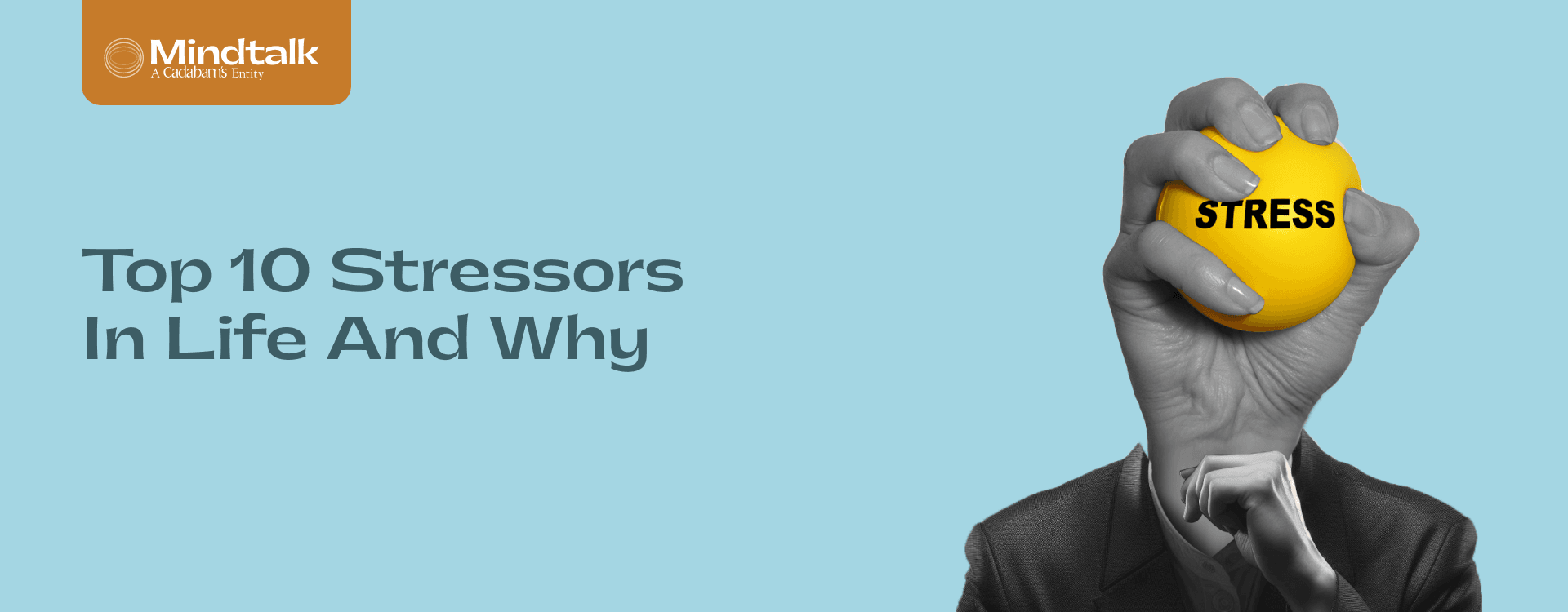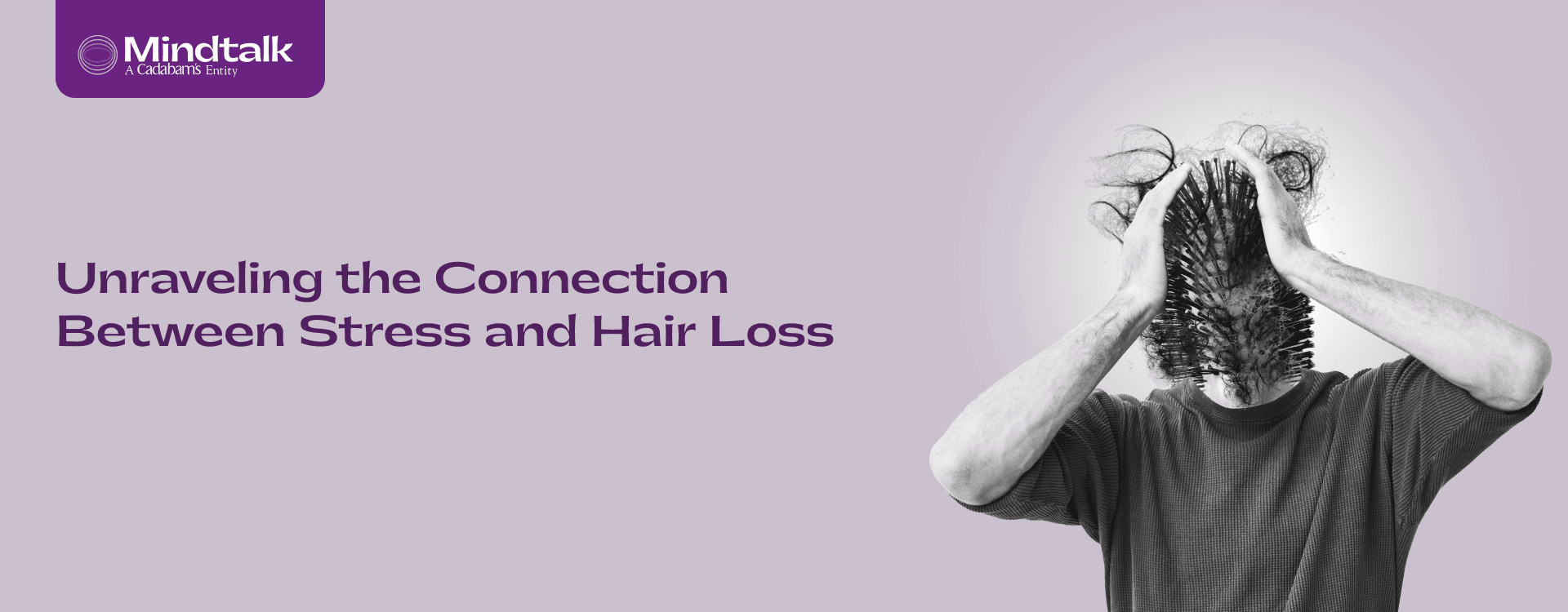Ayurveda and Stress: Time-Tested Lifestyle Remedies
Ayurveda as a medical practice is all about the equilibrium between the mind, spirits, and body workings. In today’s world, the overstimulation and frequent burnout can be looked at through the stress and how it interacts with one’s life.
Ayurveda provides holistic approaches that transcend centuries of advancement, helping individuals fully understand stress along with guiding individuals toward mindful, nature-based approaches toward stress rehabilitation.
Understanding Stress Through Ayurveda: A Holistic Approach
Ayurveda relies on the philosophy of harmony between body, mind, and spirit.
It believes that stress emerges from raja (hyperactivity) and tamasic (inertia) excess, which disrupts your internal balance.
How Ayurveda Defines Stress and Its Impact on Overall Health
Ayurveda encompasses all aspects of life as the most important. As a result, for stress to arise, one must have an incorrect imbalance in doshas (Vata, Pitta, Kapha) as well as in the mental qualities known as gunas.
Disorder of these doshas leads to a wide array of physical and emotional troubles. Stress lessens Ojas (vitality), increases susceptibility to common ailments and diseases, and violates the rhythm within mind, body, energy and immunity resulting in poor, unbalanced energy levels as well as immunity.
The Concept of Balance (Sattva, Rajas, Tamas) in Mental Well-being
- Rajas facilitates loosening self-restraints and boosts the likelihood of experiencing ambition and anxiety.
- Tamas brings about sluggishness, confusion, and at the extreme leads to depression.
- Sattva as indicated in its definition offers calm, and emotional ease with no distress alongside clarity.
Moods, motivation, resilience when faced with stress, and sustained level of motivation, all depend on the capacity to achieve equilibrium of body and mind with presence of over rajas and or tamas.
Why Modern Lifestyles Create Stress Imbalances
Modern routines often increase rajas (hyperactivity) and tamas (sluggishness), weakening sattva. Constant screen time, erratic sleep, processed food, and multitasking disrupt natural rhythms. These stressors overstimulate Vata, inflame Pitta, and stagnate Kapha—leading to mental exhaustion, burnout, or inertia. Ayurveda encourages rhythm, mindfulness, and simplicity to restore inner balance.
The Three Doshas and Stress: How Vata, Pitta, and Kapha Respond Differently
Each person’s response to stress depends on their dominant dosha. Vata, Pitta, and Kapha express imbalance in different ways—personalising the stress experience.
Vata Imbalance
Leads to overthinking, racing thoughts, anxiety, and insomnia. People feel scattered, fearful, and mentally ungrounded—especially under unpredictable or chaotic conditions.
Pitta Imbalance
Manifests as irritability, anger, impatience, and burnout. There’s a strong drive to control, meet goals, and win—until frustration explodes under pressure.
Kapha Imbalance
Causes sluggishness, withdrawal, emotional eating, and low motivation. Stress feels heavy. Individuals may oversleep or feel stuck in a cycle of inertia.
Ayurvedic Herbs for Calming the Mind and Reducing Stress
Certain Ayurvedic herbs soothe the nervous system and balance doshas, promoting calm and clarity without sedation or dependency.
Ashwagandha
A powerful adaptogen that reduces cortisol levels, eases anxiety, and supports adrenal health. Ideal for chronic fatigue and nervous tension.
Brahmi
Renowned as a “brain tonic,” Brahmi sharpens memory and reduces mental clutter. It promotes sattva, enhances clarity, and calms the mind.
Jatamansi
Known for its grounding effects, Jatamansi promotes deep rest, eases emotional distress, and supports healthy sleep patterns.
Ayurvedic Daily Rituals (Dinacharya) to Reduce Stress and Promote Calm
Consistent daily routines (dinacharya) regulate biological rhythms, stabilise emotions, and help anchor the nervous system.
Morning oil pulling, meditation, and breathwork for a stress-free day.
Oil pulling, tongue scraping, and deep breathing followed by meditation prepare the mind for clarity and focus.
Afternoon grounding practices to prevent burnout.
A light, sattvic lunch, followed by mindful pauses or a short walk helps prevent Pitta burnout and supports digestion.
Evening wind-down rituals for deep relaxation.
Self-abhyanga (oil massage), candlelit space, and soothing music signal the nervous system to relax and prepare for restorative sleep.
Healing Through Ayurvedic Nutrition: What to Eat and What to Avoid
Ayurveda views food as a direct way to restore emotional balance. Eating according to your dosha helps reduce stress, boost clarity, and stabilise energy. Align meals with your constitution and avoid foods that aggravate imbalances to promote deeper healing from within.
Warm, nourishing foods to pacify Vata-induced anxiety.
Warm, cooked meals help ground restless Vata. Include ghee, root vegetables, soups, and warming spices like cinnamon. Avoid raw, cold, dry, or frozen foods that increase anxiety and make digestion erratic.
Cooling foods to calm Pitta’s fiery stress response.
Cool, soothing foods pacify overheated Pitta. Eat cucumber, coconut, mint, and sweet fruits. Avoid spicy, sour, oily, and fried foods that add fuel to frustration, anger, or burnout.
Light, energising foods to uplift a sluggish Kapha mind.
Stimulating, light foods invigorate Kapha. Use dry grains, light vegetables, spices like ginger or turmeric. Avoid dairy, cold desserts, fried snacks, and excess sweets that dull motivation and increase emotional heaviness.
The Power of Pranayama: Breathwork for Instant Stress Relief
Breathing is a direct path to the nervous system. Pranayama balances mental energy and brings the body into calm regulation.
Nadi Shodhana
Alternate nostril breathing that balances left and right hemispheres—calms the mind and improves emotional clarity.
Bhramari
The humming bee breath vibrates through the brain and nervous system, releasing tension and promoting inner stillness.
Ujjayi
“Ocean breath” slows heart rate, builds warmth, and supports meditative focus—especially useful for anxiety and emotional overwhelm.
Ayurvedic Massages and Therapies: Relaxing the Nervous System
Grounding the body through therapeutic touch helps release stored stress, calm the mind, and stabilise the doshas.
Abhyanga
Warm oil self-massage that soothes Vata, nourishes tissues, and promotes deep calm when done before sleep or after a stressful day.
Shirodhara
A steady stream of warm oil poured on the forehead calms the overactive mind and promotes theta brainwave states.
The role of herbal baths and aromatherapy in reducing tension.
Eucalyptus, lavender, and sandalwood oils in warm baths or diffusers promote parasympathetic relaxation and subtle sensory healing.
Yoga and Ayurveda: The Best Asanas for a Stress-Free Mind
Movement tailored to one’s dosha brings emotional release, better energy flow, and grounded presence.
Grounding postures for Vata
Child’s Pose and Forward Bend stabilise erratic Vata and ground the nervous system with deep, slow breathing.
Cooling postures for Pitta
Cooling postures like Moon Salutations and Seated Forward Folds help release intensity and soothe emotional inflammation.
Energising postures for Kapha
Energising postures like Sun Salutations and Camel Pose break stagnation and elevate mood and motivation.
Ayurvedic Sleep Remedies: How to Create a Calming Night Routine
Sleep is when the body heals. Ayurveda encourages slow, soothing transitions into rest to restore mental and emotional resilience.
The role of golden milk
Turmeric with warm nut milk calms Vata and supports deep, healing sleep. A pinch of nutmeg or cardamom adds extra benefit.
Herbal Teas
Chamomile, Brahmi, and Tagar teas are tailored to each dosha and help wind down the body and mind.
Tech-Free Wind-Down
Journaling by candlelight, warm oil massage, and screen-free time quiet mental chatter and signal rest to the brain.
Embracing Ayurveda for a More Balanced Life with Mindtalk
Ayurveda is more than a remedy—it’s a way of life that nurtures resilience, clarity, and emotional freedom. In a world full of stimulation and stress, its ancient wisdom offers modern tools for lasting inner balance. Start small, stay consistent, and let the body and mind rediscover their natural rhythm—one breath, one ritual, one calm moment at a time.
Meet Our Stress Management Experts

